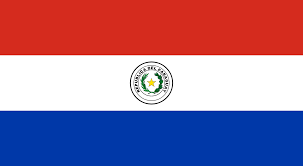
Paraguay, a nation endowed with mighty hydropower sources and ample clean energy, ventures into crypto’s realm. Its Congress now weighs three momentous bills. These bold proposals, from both Senate and Chamber quarters, aim to establish a regulatory framework for digital currencies and Bitcoin mining’s evolving landscape.
NEW: 🇵🇾 Paraguayan Depty presented a bill to legalise and recognise #Bitcoin as a legal tender: Reports 👀 pic.twitter.com/IZ1GYui2Fk
— Bitcoin Magazine (@BitcoinMagazine) April 23, 2024
Paraguay faces two proposed laws regarding cryptocurrencies. One bill suggests a temporary halt. It wants to ban anything crypto-related for six months. This includes creating, storing, and selling virtual assets. The Senate hopes pausing crypto will allow time to address concerns. Before wider adoption occurs, they aim to thoroughly examine potential issues.
A vital matter addressed by the Senate involves widespread reports of illicit electrical hookups utilized by Bitcoin mining operations. These unauthorized connections have led to substantial electricity losses nationwide. The suggested prohibition intends to curtail such activities, allowing time for the development of robust regulations.
Bitcoin Adoption in Paraguay
Paraguay’s lawmakers are debating a new bill about digital currencies. Derlis Rodríguez proposes creating a digital Paraguayan guaraní that would circulate with Bitcoin. His bill wants Paraguay to accept Bitcoin as legal money. Other lawmakers see things differently, though. They have different ideas for regulating digital currencies in Paraguay.
However, Rodríguez’s plan accepts the possible dangers linked to digital currencies. The proposal stresses the crucial need for strict rules to minimize these risks, notably risks involving money laundering and tax evasion that could be facilitated by unregulated crypto transactions.
Another bill, introduced by Lawmaker Yamil Esgaib, stresses keeping local oversight of Paraguay’s growing cryptocurrency sector. Esgaib’s plan requires all people and businesses dealing with crypto – facilitating trades, advertising, exchanging, or storing digital assets – to register with Paraguayan authorities and follow all national regulations.
The outcome of these deliberations carries great significance, extending beyond Paraguay’s borders and potentially shaping the global digital economy. Paraguay’s abundant renewable energy resources make it a potential Bitcoin mining powerhouse. The regulatory framework developed through these bills could guide nations worldwide in navigating the complexities of cryptocurrencies.








